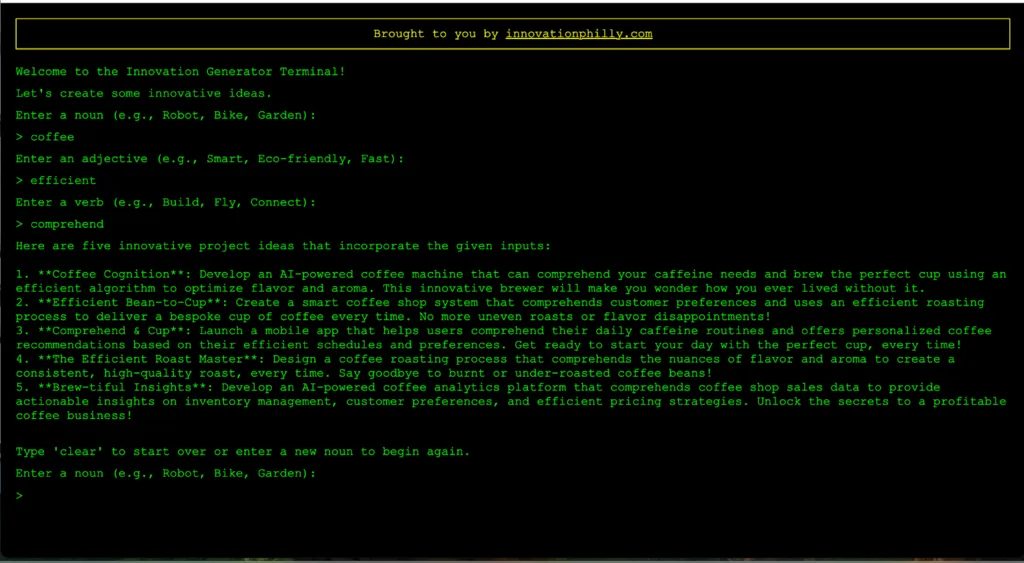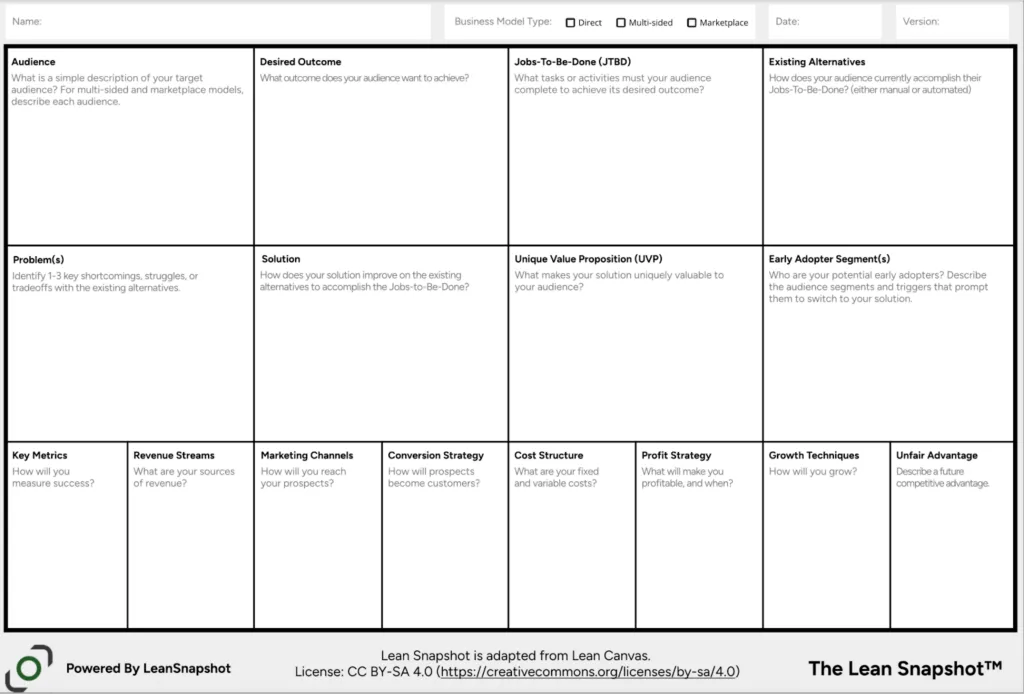|
Getting your Trinity Audio player ready...
|
Building a business today is easier and more accessible than ever, thanks to technological advancements and globalization. The Internet has broken down barriers to information; social media offers simple ways to conduct customer research and tools for prototyping and launching Minimum Viable Products (MVPs) are now affordable and widely available. In the past, access to these resources wasn’t as easy, and if an individual did have the means to get their hands on them—typically by way of a necessary fundraising round—it provided a serious advantage. But today, these resources are practically standard.
To gain a real edge in the competitive, high-risk startup landscape, founders need to take novel approaches by using new tools and finding ways to give themselves an advantage. It might not come as a surprise, but giving founders this sort of advantage is actually something that artificial intelligence (AI) is good at.
AI’s impact on our work and personal lives is widely discussed, but I recently saw it in action in a way that is not as often talked about as when I went to the Philadelphia Open Innovation Tournament. At the event, AI was not just a support tool; its use was strongly encouraged, and the organizers integrated mechanisms to ensure that AI played a central role in the ideation process.
But first, since I am sure you are wondering: what is an Open Innovation Tournament? This event is similar to a hackathon but, in my opinion, broader in scope with a different desired outcome. The tournament brings people together to rapidly generate, test and refine ideas across a range of industries, followed by structured rounds of feedback that lead to participants creating, evaluating, and, if they are one of the lucky few who make it to the final rounds, pitching innovative ideas to ultimately uncover viable solutions to real-world challenges.
More importantly, at this event, I gained a much better understanding and first-hand experience of how AI can help founders go from a blank page to viable business concepts faster than traditional methods allow.
AI chatbots for rapid business ideation
Typically, my focus as the founder of a startup incubator begins at the “let’s see if this idea is in demand and financially feasible” stage, not at the initial brainstorming phase. However, at the tournament, I experienced how AI can help generate business ideas from scratch, moving founders from zero to one in under five minutes. If you are starting from nothing or don’t know where to begin, AI offers a way to ideate without being constrained by personal experience or knowledge.
During the tournament, AI chatbots—including a tournament-specific AI chatbot—were available to guide participants through the ideation phase, showing that AI can reduce the time and effort needed to generate viable ideas. As long as the participants could identify the industry or type of product they were interested in, AI could help shape the concept further.

Battle-testing business ideas with AI
Once you’ve combed through the list of AI-generated ideas and have settled on the one you’d like to pursue, the next step is to battle-test it. Here, AI becomes invaluable again, as it can be used to simulate real-world scenarios and identify potential pitfalls early on. At this stage, I suggest going beyond reliance on AI to build the business model. Although AI can be an aid at this stage of the process, it is meant to supplement your knowledge and problem-solving skills, NOT entirely replace them.
So, at this stage, I suggest beginning to hash out your business model and to start taking steps to see if it is a viable business that can exist in the real world and not just a business that sounds good on paper.
I would do this by really digging into four areas of the business model: examining (1) the main problems the product aims to solve, (2) the solutions it provides to those problems, (3) the target customer segment and the size of the market and (4) the business model’s unique value proposition—in particular, why somebody would want to shop with you instead of shopping with one of the existing alternatives in the market. As you can begin to imagine, this step is a very hands-on process, but AI can be a great sparring partner at this stage, helping you think through each of those elements of your business model; a tool that I like to use in this process is the Lean Snapshot.

During this process, AI can play the role of a well-known investor or industry expert, challenging your business model and pointing out weaknesses you might have missed. By debating your idea with AI, you can gain insights into potential objections, risks and opportunities for refinement. Taking this AI-infused approach should strengthen your concept and prepare you for real-world questions and challenges you will likely face.
It’s important to mention that your ability to strengthen and refine your business idea with AI will only be as effective as your ability to sufficiently prompt whatever AI you are using. Effective AI use requires well-crafted prompts that provide specific and clear guidelines. Without thoughtful input, the AI’s outputs may be underwhelming. It sounds silly and is becoming cliché, but mastering prompt creation—which is often called “prompt engineering”—is a skill that pays off, especially if you’re truly using AI to develop and validate business ideas or just to have maximum impact in general.
Transforming early business ideas into market-ready concepts with AI
Hopefully, this article has given you a glimpse into how AI can help transform your initial ideas into more substantial, market-ready concepts. In a world where being coachable, flexible and fast are essential, the ability to quickly adapt and refine ideas gives founders a competitive edge. Regardless of whether you’re a first-time founder or a seasoned entrepreneur, AI offers a path to smarter, more resource-efficient business building.
It’s also important to flag that, at the moment, AI is a tool that complements, not replaces, human insight and creativity. The value it provides is only as good as the information and direction you give it. In other words, your results depend on your input. If your prompts are well-crafted, AI can be a powerful accelerator in the business ideation and testing process.
However, if you’re still learning how to get the most out of an AI chatbot, be prepared to ride a learning curve before you get outputs worth putting into play or outputs that don’t require heavy editing. But once you master it, AI can transform the early stages of business creation and allow you to navigate the challenging path of bringing a new idea to life faster and more confidently.
In order for artificial intelligence (AI) to work right within the law and thrive in the face of growing challenges, it needs to integrate an enterprise blockchain system that ensures data input quality and ownership—allowing it to keep data safe while also guaranteeing the immutability of data. Check out CoinGeek’s coverage on this emerging tech to learn more why Enterprise blockchain will be the backbone of AI.
Watch: Demonstrating the potential of blockchain’s fusion with AI

 09-09-2025
09-09-2025 





